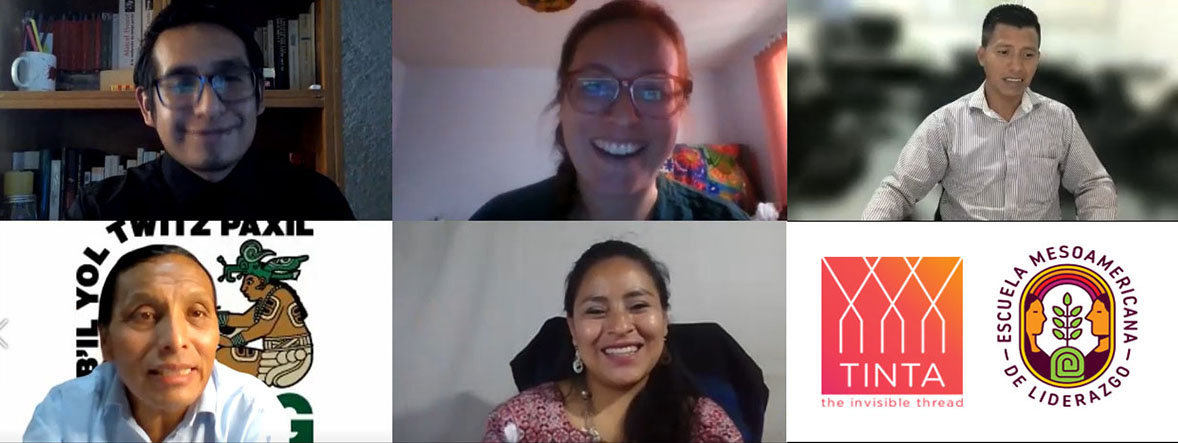Conversations, February 17 & 18, 2022
Within the framework of the International Mother Language Day, whose emphasis on the year 2022 promotes reflection on the use of technology for multilingual learning, we take the opportunity to celebrate the cultural and linguistic diversity of the forest territories of Mesoamerica, and bring together in this space experiences that motivate young people to use technologies and the digital space to promote and revitalize history, culture and their mother tongues.
One of the objectives of the Mesoamerican School of Leadership and the Association of Forest Communities of Petén (ACOFOP), is to strengthen community identity through the systematization of the processes experienced, the history and struggles of grassroots organizations, as well as the recovery of collective memory. These conversations were born from the concern of the young people of Petén, Guatemala, who, not speaking the language of their grandfathers and grandmothers, wondered why the mother tongue is important? What relationship does it have with our culture and territory? How can we use technologies and digital media for the revitalization of the mother tongue and historical memory? Thus, we brought together young digital activists and one or another senior activist to inspire the students of the Mesoamerican School of Leadership.
During the first table Linguistic diversity in the Maya Biosphere Reserve, Petén, Guatemala. Opportunities for the revitalization of indigenous languages, we have an inspiring introduction by Álvaro Pop Ac, Mayan Q’eqchi’ and political scientist specialized in inter-ethnic relations. From his work in international institutions such as the United Nations Permanent Forum on Indigenous Issues and the Fund for the Development of the Indigenous Peoples of Latin America and the Caribbean (FILAC), of which he was president and technical secretary respectively, he has promoted the approval of the International Year of Indigenous Languages and then the International Decade of Indigenous Languages. Alvaro reminded the young people that «speaking our languages is a right, it is not a concession made by the State.»

Through international legal instruments, the strong link that exists between linguistic communities and their territories has been underlined. Álvaro shared with us reflections on inequality and discrimination, the digital divide and, above all, the lack of articulation between formal education and the promotion of mother tongues.
He reminded us that it is a challenge but also an opportunity to use technology to break the ignorance and discrimination towards the languages of indigenous peoples, who are seen as a minority and useless. “Technologies can help us accelerate formal education, but it is also an opportunity for the knowledge of indigenous peoples to be an intellectual contribution to technological development, just as the knowledge of indigenous peoples has contributed to medicine, to the elaboration and production of medicines. The challenge for young people is to use their creativity and drive to break those gaps, he concluded.
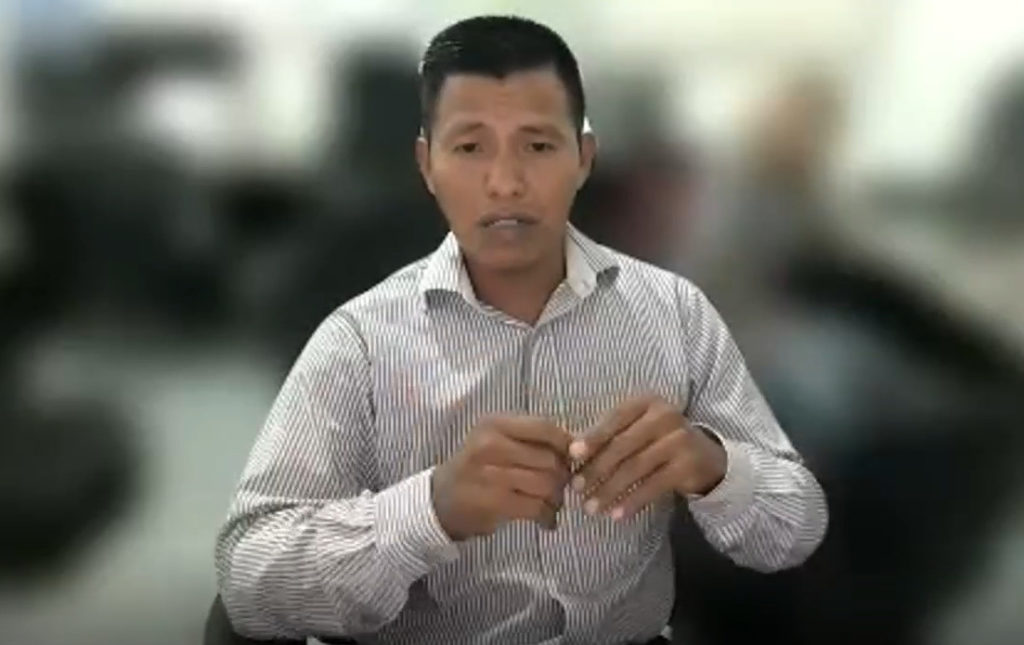
Andrés Bonifacio Bartolo Díaz, community teacher and youth representative from the Mesoamerican School of Leadership, spoke to us about the linguistic diversity in the cooperatives of the Sierra Lacandón National Park. This diversity is linked to armed conflict, exile, and return. “The people mixed thanks to the achievement of the land of our fathers. We all come here and around 8 languages are practiced in our community. Most young people no longer speak the languages of their parents and grandparents. We are looking for strategies for the recovery of those languages.”
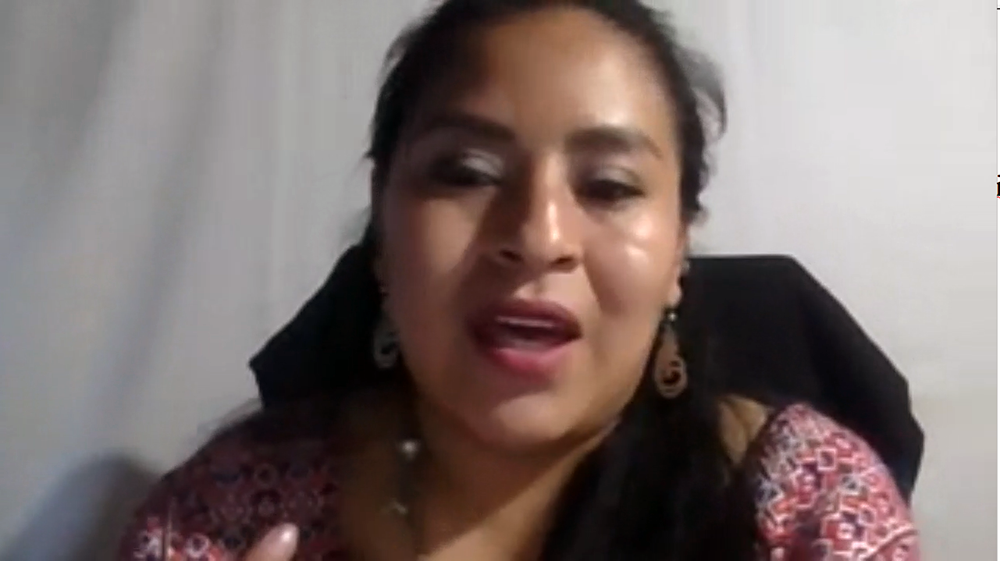
Responding to the concerns of the young people from Peten, Vianna González, a Mayan Kik’che speaker, reminded us that the best way to transmit our knowledge and reinforce our language skills is by speaking. “Through our languages, we are teaching values, our science, our technology, our culture: speak, chat, teach the little ones, don’t be afraid to speak your language”.
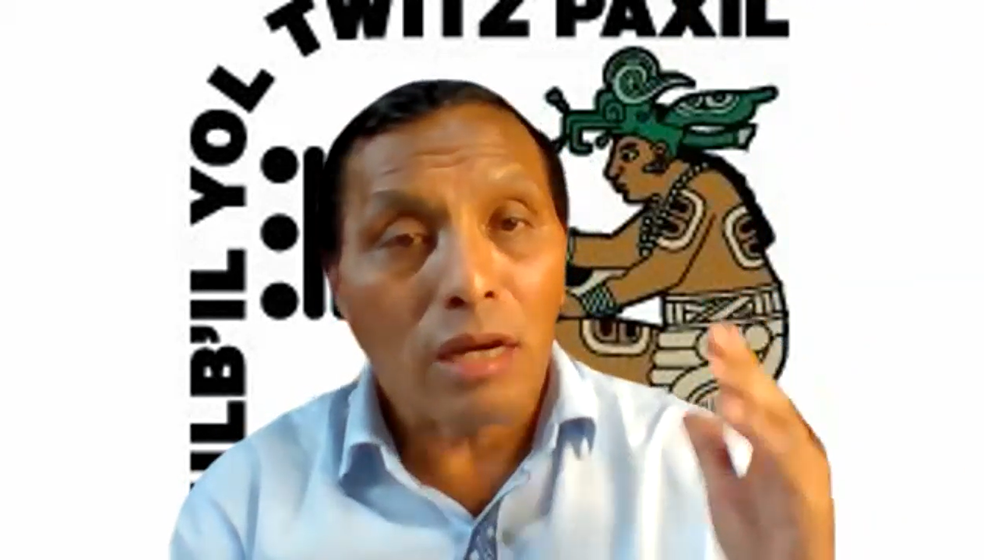
Finally, Modesto Baquiax, a specialist in linguistic research at the Academy of Mayan Languages of Guatemala and K’iche’, Mam and Sakapulteko speaker, based on the Mayan concept xuxik or xwinaqirik (it was made, achieved or the existence or life), shared with us a reflection on the first concepts related to virtuality and its reinterpretation in the Mayan languages.
“For us, it is important to transcend time and space. At the Academy of Mayan Languages of Guatemala, we have asked ourselves how to enter modernization and how to give life to these technological forms. We begin by translating in the Kik’che language and in our Mayan concept: when something is built, it is done, when something appears then it achieves life, it has a being, it has a transcendence, we say “xuxik” when something appears and achieves life. If the internet, if cell phones, computers, emails have life, let’s give them life, let endure to transcend»
Modesto Baquiax, specialist in linguistic research at the Academy of Mayan Languages of Guatemala
Samulximb’il (Mam) = Internet:
Sam= To send
Ul= To come
Xim=thoughts
b’il=instrument
«The internet is then the swing of thought»
Thus, the swing of thought and word led us to discover other territories and experiences during the second table Activism and digital tools for the strengthening of indigenous languages. Some experiences in Mesoamerica.

We start with Marco Martínez from Oaxaca, Mexico, a speaker of the Ayöök language. Through the experience of Kumoonton, the nonprofit association in which he participates along with other young Ayöök speakers. Kumoonton means tequio, task, collective, collaborative work for the well being of the community. It is not only a name but a philosophy with which they have created physical and digital materials, given workshops, and promoted the language in digital spaces. «We want to normalize its use in digital spaces, spread it on ayöök, and go viral on Twitter.»
Marco insists that the use of digital social networks “is not a recipe, everything has been on the fly, our path. It doesn’t mean that it has to be that way because each language is in a different situation” he points out. “I think that one of the first actions is to identify where we are, what we have, and what we could do. For example, the creation of the application was because we wanted to show boys and girls on their device, for them to see it, for it to be attractive to them… they said surprised: it is speaking in our language!” Thus Marco and the Kumoonton compas seek to break with generational loss by motivating children, youth, and adults from different trenches.
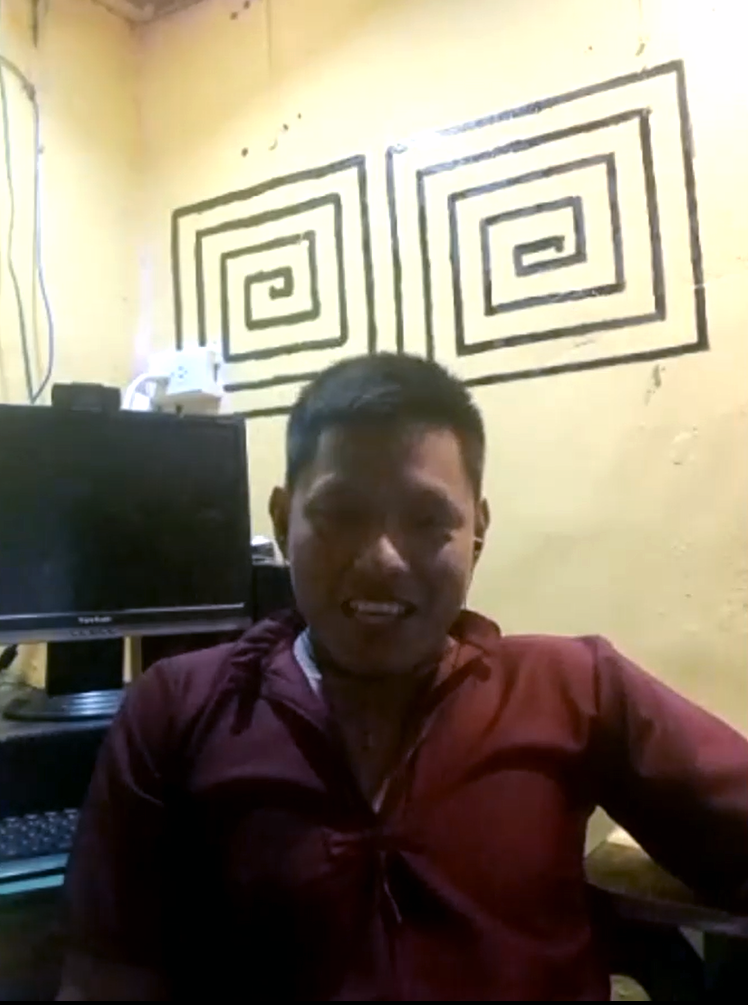
A similar situation was told to us by Juan Carlos González, known as Sabdur, who was motivated by the fear that his children would no longer speak or know their Guna language and culture, an indigenous people found in Panama and Colombia. Seeking to transcend the first frontier for the survival of the language: the family, he created Anmar Gunadule in April 2019 as a personal project to bring his eldest daughter closer to the culture, traditions, language, identity, and future of her people.
Amnar Gunadule is a digital space on social networks that are dedicated to spreading the Gunadule culture: history, traditions, gastronomy, language. In addition, he created the musical project Rap Sabdur, a rap music group in Dulegaya, the Guna language. His themes deal with experiences, stories, and indigenous resistance. Currently, the two projects come together to create a podcast on topics of interest to the Guna people, to disseminate, make visible, and preserve their identity.
Yuam Pravia. leader and communicator from Moskitia, Honduras, gave a tour of the increasing efforts to recover and promote the Miskitu language using the performing arts, creating dictionaries, producing radio content, and other digital resources to promote the learning and use of Miskitu as part of a communication strategy from the territory.
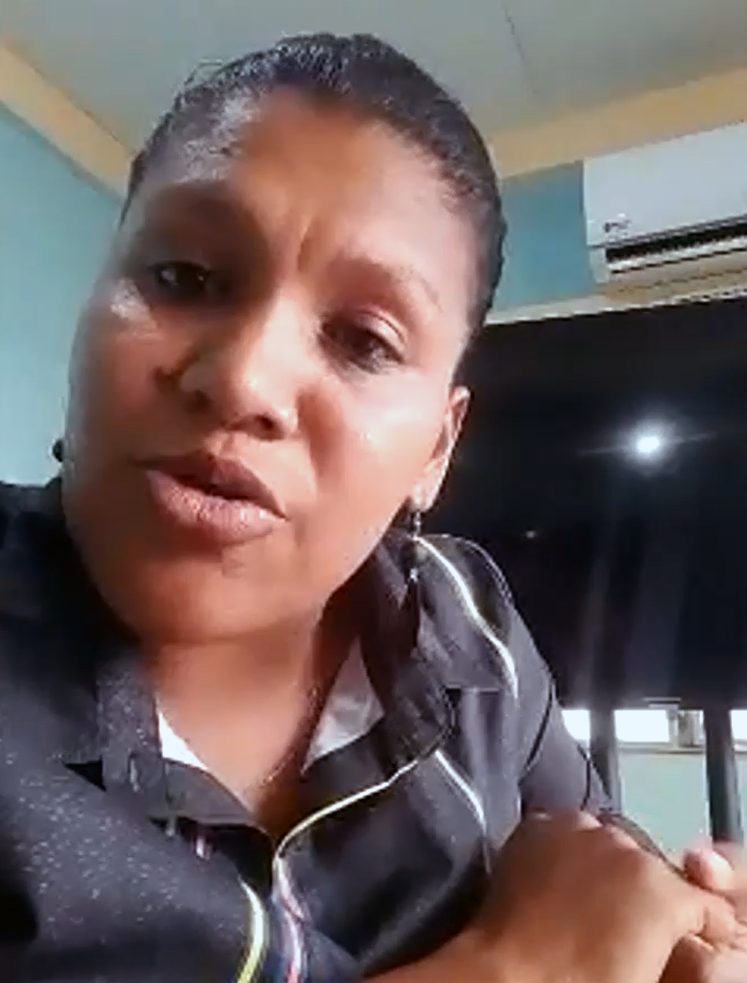
“We are a binational nation, our language is strong and powerful in this region. For the first time in history we have had a strengthening of the Miskito language. From generation to generation history is being made, let us continue to use digital media and social networks to work and hopefully in a future meeting we can tell you that we have developed strategies and used technology to strengthen the Miskitu language”.
Yuam Pravia. leader and communicator from the Moskitia, Honduras
To finish, we were accompanied by Leticia Esteban, who coordinates the Linguistic Revitalization Project of the Union of Cooperatives Tosepan in the northern highlands of Puebla, Mexico. The program to revitalize Nahuatl and Tutunaku in the cooperative “has been a pillar and a base that has made it possible to lay the foundations for other projects, it is fundamental to know who we are. Starting from who we are, we can trace a path to decide how we want to do it, a life plan that involves many paths: a tree of dreams that we had”.
Within those dreams, one is that of technological autonomy, and along this path it has allowed us to “continue reproducing life, taking places, not in a process of conquest, but rather of winning and recovering territories and appropriating new spaces that give us the opportunity for our language to continue to live and continue to be shared with the world”.
In closing, Leticia reminded us that “our ways of life have shown that they have been able to safeguard life itself and there is much to share with the outside world. Technologies are for communities and technological appropriation is a way of claiming ourselves, of claiming our spaces and our future: where do we see ourselves?
The forest territories of Mesoamerica are home to a great cultural and linguistic diversity that is increasingly threatened. With the extinction of languages, possibilities, traditions, memories, unique modes of thought and expression, ancestral knowledge and technologies for the protection of forests, biodiversity, and community management of natural resources are lost. For forest peoples and communities, language is life and territory, a vehicle of memory and ancestral knowledge of nature. Through the language, ancestral knowledge and technologies are transmitted and preserved for the protection of forests, biodiversity, and the sustainable and community management of natural resources, as well as the fight against climate change.
We thank each of our participants for sharing their experience and their love for their language and culture, and for joining us in this space to celebrate the beginning of the International Decade of Indigenous Languages 2022-2032. Thank you for being part of this effort to create new ties and strengthen alliances between young people from different territories and activist communities.
We invite you to listen to the full interventions in the following links:
Session 1. Linguistic diversity in the Maya Biosphere Reserve, Petén, Guatemala. Opportunities for the revitalization of indigenous languages https://fb.watch/bezIp99vIP/
Session 2. Activism and digital tools for the strengthening of indigenous languages. Some experiences in Mesoamerica https://fb.watch/bfRmJZDBip/
The talks on activism and digital tools for the strengthening of indigenous languages in Mesoamerica have been organized by The Invisible Thread (TINTA) as part of its Weaving Ties program
